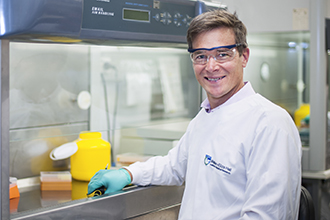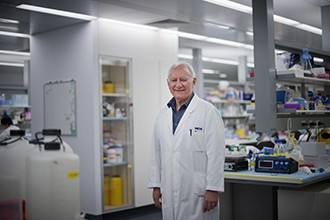Our research is directed at understanding how the immune system regulates itself to prevent disease. This is important because the immune system has to be able to distinguish ‘non-self’ from ‘self’ in order to eradicate infections and tumors on the one hand but avoid causing autoimmune disease on the other.
We study how the environment and our genes interact in early life to alter immune function, leading to autoimmune and allergic disease.
In the case of type 1 diabetes, we have developed ways to identify children at risk and are undertaking clinical trials to regulate immunity and prevent this disease.



